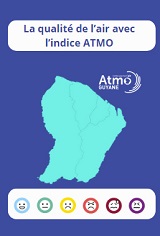Blada.com
jeudi 24 avril
Boîtes aux lettres
Courrier des lecteurs
Petites annonces
Emploi / Formation
Covoiturage
Infos citoyennes
Infos citoyennes
02/08/22
En Guyane, la vaccination contre la variole du singe a démarré
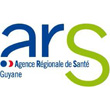 De premiers décès dus au virus monkeypox ont été enregistrés en Espagne et au Brésil, ainsi qu’en Afrique où le virus est endémique. Chez nous, il est possible aux personnes exposées au virus monkeypox ou aux personnes à risque de prendre rendez-vous pour recevoir deux doses du vaccin Imvanex. Un traitement est également disponible.
De premiers décès dus au virus monkeypox ont été enregistrés en Espagne et au Brésil, ainsi qu’en Afrique où le virus est endémique. Chez nous, il est possible aux personnes exposées au virus monkeypox ou aux personnes à risque de prendre rendez-vous pour recevoir deux doses du vaccin Imvanex. Un traitement est également disponible.
Deux premières personnes ont reçu une dose de vaccin contre la variole du singe, ces derniers jours, au centre hospitalier de Cayenne. Le premier suite à une exposition au virus ; il avait reçu sa première dose en Île-de-France et, se trouvant en Guyane 28 jours plus tard, c’est là qu’il a reçu sa seconde dose. La seconde personne vaccinée, faisant partie des personnes à risque, a reçu sa première dose la semaine dernière, en préexposition. D’autres personnes ont pris rendez-vous cette semaine pour une vaccination préexposition. La Guyane compte une soixantaine de flacons monodoses.
 A qui est recommandée la vaccination
A qui est recommandée la vaccination
La vaccination post-exposition est proposée aux personnes contacts à risque identifiées par les ARS dans le cadre des investigations réalisées autour des cas probables et confirmés de Monkeypox (et en lien avec les équipes d’hygiène et de santé au travail pour les personnes contacts à risque en milieu de soins). Elle consiste en deux doses à 28 jours d’intervalle du vaccin Imvanex. Les personnes ayant bénéficié d’une vaccination antivariolique de 1re génération avant 1980 peuvent ne recevoir qu’une seule dose, comme le précise ce message DGS-Urgent.
La vaccination préexposition est recommandée :
- Aux personnes ayant des relations sexuelles avec des hommes et rapportant des relations sexuelles multiples;
- Aux personnes en situation de prostitution ;
- Aux professionnels des lieux de consommation sexuelle.
Plus généralement, la vaccination est recommandée à toute personne fréquentant ou ayant l’intention de fréquenter un lieu de convivialité sexuelle, n’hésitez pas à en parler à vos patients.
Où se faire vacciner
En Guyane, cette vaccination préventive est possible au sein du centre hospitalier de Cayenne (CHC) et des centres délocalisés de prévention et de soins (CDPS), ainsi que dans d'autres centres éligibles tels les centres gratuits d’information, de dépistage et de diagnostic (Cegidd), uniquement sur rendez-vous :
- Centre hospitalier de Cayenne : 0594 39 51 00
- Cegidd CPS Cayenne : 0594 28 36 13
- Cegidd CPS Kourou : 0594 32 05 56
- Cegidd CPS Saint-Laurent du Maroni : 0594 27 98 11
- Cegidd du Chog : 0594 34 89 03
 Un antiviral disponible en Guyane pour les cas graves
Un antiviral disponible en Guyane pour les cas graves
En cas de test positif, l’isolement de la personne malade pour une durée de trois semaines à partir de la date de début des symptômes et jusqu’à la guérison totale des lésions de la peau, l’application des gestes barrières et le traitement pour soulager les symptômes sont indispensables, rappelle l’Assurance maladie. Pour les cas graves et les personnes à risque, un traitement est disponible. Il est décidé avec l’aide d’un médecin infectiologue.
L’antiviral tecovirimat, traitement de première intention, est disponible en Guyane depuis la semaine dernière. Le territoire dispose, pour l’heure, de quoi prendre en charge cinq patients.
 Monkeypox : l’Institut Pasteur de Guyane analyse les prélèvements
Monkeypox : l’Institut Pasteur de Guyane analyse les prélèvements
L’Institut Pasteur de Guyane est en mesure de détecter le virus de la variole du singe (monkeypox). Il est donc possible aux professionnels de santé de lui envoyer leurs prélèvements plutôt que de les adresser au centre national de référence (CNR) des orthopoxvirus, situé en Île-de-France. Dans un courriel adressé ces derniers jours aux hôpitaux, aux CDPS et aux URPS médecins et pharmaciens, l’ARS rappelle la marche à suivre en cas de suspicion :
- D’abord demander un avis dermatologique à l’hôpital de Cayenne (CHC) en contactant le dermatologue d’astreinte par portable ou par mail ;
- Si la suspicion d’une infection au monkeypox virus est validée à l’issu de l’échange avec les dermatologues, réaliser le prélèvement selon les préconisation du Coreb ;
- Envoyer le prélèvement au laboratoire de virologie de l’IPG tout en informant l’ARS par mail à ars973-alerte@ars.sante.fr.
L’Institut Pasteur enverra les résultats au préleveur, à l’ARS et au service de dermatologie du CHC. En cas de résultat positif, le contact tracing sera réalisé par l’ARS et Santé publique France qui proposeront la vaccination préventive aux contacts à risque, en coordination avec l’équipe territoriale des maladies infectieuses et tropicales (Umit).
En Guyane, neuf prélèvements ont été réalisés sur des cas suspects d’infection à monkeypox. Tous se sont révélés négatifs.
Des informations sur le site de l’ARS
De son côté, l’Agence Régionale de Santé consacre une page de son site internet au virus Monkeypox. Vos patients y trouveront des informations sur ce qu’est la variole du singe, la manière dont se transmet le virus, la conduite à tenir en cas de symptômes, sa gravité et la vaccination. Quant au site du ministère de la Santé et de la Prévention, il compile l’ensemble des informations utiles aux professionnels de santé dans une rubrique dédiée.
Cet article est issu de la Lettre pro de l’Agence régionale de santé. Vous pouvez vous y abonner en remplissant le formulaire suivant : https://forms.sbc28.com/5a8bed50b85b5350ef1cd117/t13M7zUZQi2XMq5E3DdnhQ/0WQoeDwjRXqJblCpKbLDzA/form.html
 The first deaths from the monkeypox virus have been recorded in Spain and Brazil, as well as in Africa where the virus is endemic. With us, it is possible for people exposed to the monkeypox virus or people at risk to make an appointment to receive two doses of the Imvanex vaccine. Treatment is also available.
The first deaths from the monkeypox virus have been recorded in Spain and Brazil, as well as in Africa where the virus is endemic. With us, it is possible for people exposed to the monkeypox virus or people at risk to make an appointment to receive two doses of the Imvanex vaccine. Treatment is also available.
The first two people received a dose of monkeypox vaccine in recent days at the Cayenne hospital. The first following exposure to the virus; he had received his first dose in Île-de-France and, being in French Guiana 28 days later, it was there that he received his second dose. The second person vaccinated, one of those at risk, received his first dose last week, as a pre-exposure. Other people have made appointments this week for a pre-exposure vaccination. French Guiana has around sixty single-dose vials.
 Who is recommended for vaccination
Who is recommended for vaccination
Post-exposure vaccination is offered to at-risk contact persons identified by the ARS as part of the investigations carried out around probable and confirmed cases of Monkeypox (and in conjunction with the hygiene and occupational health teams for contact persons at risk in healthcare settings). It consists of two doses 28 days apart of the Imvanex vaccine. People who received a 1st generation smallpox vaccination before 1980 may only receive a single dose, as this DGS-Urgent message specifies.
Pre-exposure vaccination is recommended:
People who have sex with men and report multiple sexual relationships;
To people in a situation of prostitution;
Professionals in places of sexual consumption.
More generally, vaccination is recommended for anyone attending or intending to attend a place of sexual conviviality, do not hesitate to talk to your patients about it.
Where to get vaccinated
In French Guiana, this preventive vaccination is possible within the Cayenne hospital center (CHC) and outsourced prevention and care centers (CDPS), as well as in other eligible centers such as free information, screening and (Cegidd), by appointment only:
Cayenne hospital center: 0594 39 51 00
Cegidd CPS Cayenne: 0594 28 36 13
Cegidd CPS Kourou: 0594 32 05 56
Cegidd CPS Saint-Laurent du Maroni: 0594 27 98 11
Cegidd du Chog: 0594 34 89 03
 An antiviral available in French Guiana for severe cases
An antiviral available in French Guiana for severe cases
In the event of a positive test, the isolation of the sick person for a period of three weeks from the date of onset of the symptoms and until the total healing of the skin lesions, the application of barrier gestures and the treatment to relieve the symptoms are essential, recalls the Health Insurance. For severe cases and those at risk, treatment is available. It is decided with the help of an infectious disease doctor.
The antiviral tecovirimat, a first-line treatment, has been available in French Guiana since last week. The territory currently has enough to take care of five patients.
 Monkeypox: the Pasteur Institute of French Guiana analyzes the samples
Monkeypox: the Pasteur Institute of French Guiana analyzes the samples
The Pasteur Institute of French Guiana is able to detect the monkeypox virus (monkeypox). It is therefore possible for healthcare professionals to send their samples to it rather than sending them to the national reference center (CNR) for orthopoxviruses, located in Île-de-France. In an email sent in recent days to hospitals, CDPS and URPS doctors and pharmacists, the ARS recalls the procedure to follow in the event of suspicion:
First ask for a dermatological opinion at the Cayenne hospital (CHC) by contacting the on-call dermatologist by cell phone or email;
If the suspicion of a monkeypox virus infection is validated following the discussion with the dermatologists, take the sample according to Coreb's recommendations;
Send the sample to the IPG virology laboratory while informing the ARS by email to ars973-alerte@ars.sante.fr.
The Institut Pasteur will send the results to the sampler, to the ARS and to the dermatology department of the CHC. In the event of a positive result, contact tracing will be carried out by the ARS and Public Health France, which will offer preventive vaccination to contacts at risk, in coordination with the territorial team for infectious and tropical diseases (Umit).
In French Guiana, nine samples were taken from suspected cases of monkeypox infection. All tested negative.
Information on the ARS website
For its part, the Regional Health Agency devotes a page of its website to the Monkeypox virus. Your patients will find information on what monkeypox is, how the virus is transmitted, what to do in case of symptoms, its severity and vaccination. As for the site of the Ministry of Health and Prevention, it compiles all the information useful to health professionals in a dedicated section.
This article is from the Regional Health Agency's Newsletter. You can subscribe by filling out the following form: https://forms.sbc28.com/5a8bed50b85b5350ef1cd117/t13M7zUZQi2XMq5E3DdnhQ/0WQoeDwjRXqJblCpKbLDzA/form.html
Raccourcis


passer une petite annonce

passer une annonce de covoiturage


passer une annonce d’emploi
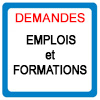

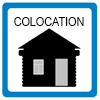
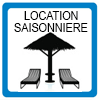
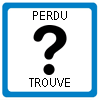
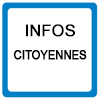
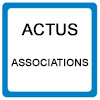
associations, postez vos actualités

participez au courrier des lecteurs
La Guyane c’est ici
La qualité de l’Air avec
ATMO
Photothèque

Lancements 2022
Vol 259 Ariane 5



